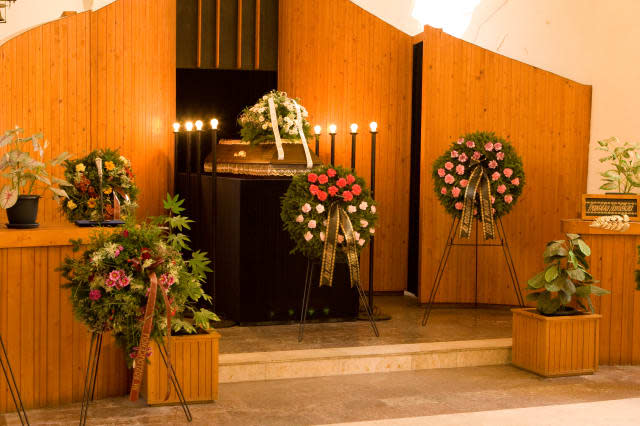Would you pay for a simulated cremation?

Chinese people are paying £26 a time to experience a 'death simulator', complete with cremation.
The Samadhi 4D Experience of Death simulator, at the Window on the World theme park in Shenzhen, was created by the founders of a cancer hospice service called Hand in Hand.
Huang Weiping and Ding Rui raised £43,000 on Jue.so, the Chinese equivalent of the Kickstarter crowd-funding website to launch the game.
As with other 'escape' games, players have to compete in a series of challenges in order to stay alive. In Samadhi, though, they are all inevitably doomed.
And when players 'die', they are placed in a coffin, then carried on a conveyor belt to a furnace - which is heated to 40 C. This gives an 'authentic experience of burning', the creators say.
Finally, players see a womb projected on the ceiling and hear a heartbeat; after a while, a bright light appears. When they crawl towards it, they are 'reborn' in a are white, padded area.
Ding and Huang say they researched the cremation process thoroughly, actually asking to be passed through the furnace - with the flames turned off. " I couldn't breathe and I thought my life was over," Huang told CNN.
So what's the appeal?
The creators of a similar service in Korea claim that it may have an effect on the country's high suicide rate.
"It's another method we have to teach people that it's not a good idea to take your own life," Lee Sang-kyu, a neuropsychiatry professor at Hallym University near Seoul, told the LA Times.
But China's suicide rate has dropped from one of the highest in the world to one of the lowest in the last few years, and Ding and Huang see the Samadhi game as having a different aim.
Both have worked as volunteers at hospices, and hope that Samadhi will help people come to terms with the concept of their own death as well as with that of their relatives.
"The saddest part of the job wasn't seeing the patients passing away but how the families refused to face death - the final days with their loved ones consisted of kind but shallow lies," says Ding.
"We lack understanding of death, and the fear can become so overwhelming."
Read more on AOL Money:
Get money off at the most popular entertainment and leisure brands
Bad taste: restaurant slammed for 'Death Row' theme
'Unusual' funeral requests on rise




